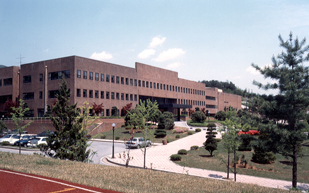
The IOJ's primary responsibilities are to provide education and training programs for the public officials of the Ministry of Justice and
we also receive request training programs from other ministries.
The IOJ offers a wide range of education programs that are organized to improve investigation skills for the public prosecutors and
investigative officers, and toward to enhance capabilities of public officials who work for general administrative offices, correctional
institutions, probation offices, juvenile training schools, immigration offices. In addition, the Institute conducts a variety of research
activities on many important issues.
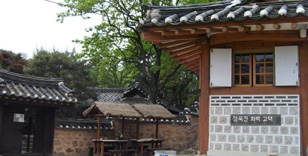
the IOJ was open as the Prison Officer's School to training Officers of prisons.
the school was renamed as the Correctional Officer's School. As society rapidly had been developing, there had emerged an increasing need to establish an educational institution for effective training of all the public officials within the Ministry of Justice.
the Correctional Officer's School was transformed and then developed into the current institute. Also to be ready for the demands of education, the institute moved into the current location on November 11, 1988 as a larger and effective training institute.
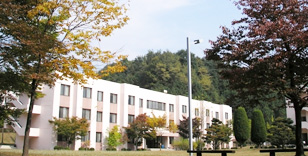
The organizational structure of the institute is composed of 2 departments and 5 divisions under the president. There are Department
of Planning and Department of Correctional Training and each of the departments has professors' office.
Total number of the IOJ officials is 105. The President of the Institute is appointed among one of the chief prosecutors in the High
Prosecutors' Office, and the chief of the Department of Planning is appointed among one of the chief prosecutors in the District
Prosecutors' Office. The President of the Institute is responsible for administering general affairs, including providing directions and
supervision to every IOJ official.
Department of Planning
The Department of Planning is responsible for educating prosecutors, administrative personnel in the prosecutors' offices, guidance
officers, probation officers, immigration officials and other public officials involved in the administration of legal affairs and developing and
implementing education and training programs. Furthermore, it provides coordination and analysis of the affairs for the implementation of
various plans, conducts an in-house audit, and evaluates and analyzes the effect of the education and training programs. It is also in
charge of collecting and examining education and training materials, publishing teaching materials and research papers, maintaining
educational equipment & library books and rendering assistance to research fellows.
Department of Correctional Training has two sections. The Operational Section is in charge of internal security, transmission of documents, staff administration, maintenance of the facility and equipment, internal evaluation and analysis of educational effects, and particularly maintenance of the library and the information center for correctional data. The Correctional Training Section is in charge of planning the training of the correctional officers and the security guards and its implementation, record- keeping for trainees, providing guidance for activities in the Institute, publishing the textbooks, maintaining educational equipment, and organizing external activities for training. There are in-house professors and appointed guest professors who deliver lectures and training materials.
The General Affairs Division is in charge of personnel, service, budget & accounting, procurement & maintenance. The Research Committee is in charge of developing research proposals and publishes the source book annually on the result of their research.
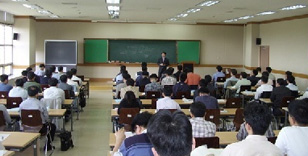
Also there are gyms and library and for the outdoor facility, there are two grassy field, tennis court, basketball court, fitness room, and golf practice yard.
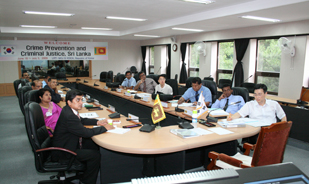
Education program of the Institute consists of three categories: basic training, expert training and special training courses. The goals
and objectives are to train the public servants to meet the new demands in the era of changing world, to develop the trainees into
specialists who meet diverse needs of the administration, and to become the officials of the Ministry of Justice and possess clear
sense of globalization and Mega competition capability in the world.
All officials of the Ministry of Justice except the public prosecutors are required to take the basic training courses. Its main focus is an
offering training that is essential to promotion of their respective status. The Institute offers the basic training course to approximately
2,000 public officials annually.
About 1200 public prosecutors take this expert training course every year, including the newly appointed public prosecutors for several weeks of training. The other Ministry of Justice officials, a total of approximately 2,500 public officials, are also required to take the expert training course annually.
In addition to the above-mentioned training courses, the Institute also offers training programs every year to 70 military legal affairs officers, and 30 Judicial Officers for Public Interest.
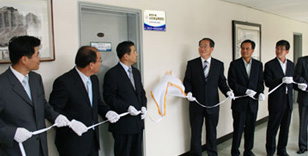
The Institute's education facility includes 3 auditoriums, 12 class rooms, a sports complex, 2 libraries, 2 exhibition rooms, and a shooting
range for the training of prison security guards. To accommodate the needs for their effective training, there are 205 dormitory rooms
in 5 buildings that provide room and board to 987 trainees.
Some of the main education devices include 181 computers, overhead projectors,
V.C.R.'s, slides, beam projector, special effect equipment and etc...


 INTRODUCTION
INTRODUCTION

















